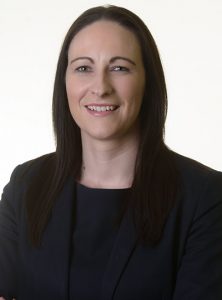Last updated on August 13th, 2019 at 08:45 am
Current law
Under current law, dictated by the Matrimonial Causes Act 1973, the court applies a number of factors when deciding the division of assets and this means that there can be variations on a case by case basis. This leads to wide discretion on the part of judges and questions as to whether this discretion is delivering consistent results.
The Act says that the starting point when making a decision is equality. Judges must then also consider section 25 of the Matrimonial Causes Act (known and referred to as the section 25 factors), these include
- children
- income and earning capacity
- financial needs and responsibilities
- standard of living enjoyed
- age and length of the marriage
- mental or physical disability
- contributions already made
- conduct
- loss of a benefit because of the divorce
Courts decide homemaker makes equal contribution
Historically, and until 2000, it was usual for the weaker party in a relationship (often the home-maker and stereotypically the woman) to receive less in the financial split than the wealthier party (often the breadwinner and the man) under the premise that “the reasonable requirements of the financially weaker party are met”. This changed when, in the case of White v White the court decided that the home-maker should be seen as having made an equal contribution to the partnership as the breadwinner, and so assets became more equally split. In 2006, courts went further and came up with the principle of ‘fairness’ that would be achieved by reviewing:
- each party’s needs
- any disadvantage that one party had suffered as a result of the relationship – e.g. giving up a highly paid job or one with a promising career
- the principle of equal sharing
Paul McCartney – courts demonstrate discretion
However, the courts’ discretion continued to be demonstrated quite clearly in the case of Sir Paul McCartney’s divorce in 2008 after a four-year marriage. Heather Mills said Paul was worth around £800 million. He had offered her £15.8m but she asked for £125m. The judge said that Heather’s estimate of Paul’s worth was over exaggerated as it was actually £400m. Nevertheless, the court awarded Heather only £24.3 million for herself and their daughter, saying that he thought it was a fair split and met both their needs.
In another case, a couple who had been married for two years, but whose relationship had been going on for nine years, enjoyed a high standard of living during the marriage. The relationship broke down and the wife suffered psychologically. The husband’s assets were valued at £37m and the judge awarded the wife £4.25m. The husband argued at the Court of Appeal that the award went beyond the wife’s needs. His appeal was dismissed, and the court said that in a short marriage discretion as to ‘needs’ was ‘broad and fact-sensitive’ and that the judge had worked within his bounds of discretion.
The Debruin case, first heard in 2013, is representative of a fairly average couple’s assets in the south-east at the time. The court awarded Mrs Debruin a total of £1.3m in money and assets, leaving Mr Debruin property worth only around £220,000. Mr Debruin argued that the award was a significant departure from equality and fairness. Mrs Debruin argued that her husband had not declared all of his assets. Mr Debruin was in a situation where should he wish to challenge the outcome, he would have to show that the judge had failed to assess the case according to the Matrimonial Act and the decision was plainly wrong.
Departure from equality
Finally, in what has been described by the husband’s lawyer as “an extraordinary departure from equality”, the wife of an anaesthetist Essam Aly, was awarded 100% of his assets, £550,000, because he had moved to Bahrain and had not paid any maintenance or child support for their two children – and it was clear he never would. He had started another relationship and had another child.
In 2014 the Law Commission found in its ‘Matrimonial Needs and Agreements’ report that legal decisions were not consistent around the country and that the general principle of ‘the final decision is up to the judge’ caused many issues. The commission said that the meaning of ‘financial needs’ should be clarified and produced a guide, aimed at the judiciary, in 2016.
Courts still have too much discretion
Many top lawyers believe that judges still have too much discretion and are now calling for divorce law reform that would curb the power invested in them to decide upon financial splits in divorce. Sir Paul McCartney’s lawyer, Baroness Shackleton, who also represented the Duke and Duchess of York, has said that judges have too much power to make unfair payouts. Baroness Deech, who introduced the Divorce (Financial Provision) Bill to the House of Lords (currently awaiting a date for the committee stage), which proposes modernisation of the division of assets on divorce, the recognition of pre and post-nuptial agreements, and an overhaul of spousal maintenance, believes the method of splitting money on divorce is ‘past its sell-by date”.
Bradie Pell, head of family law at Graysons says
“Divorce can be painful and stressful enough without the uncertainty of not knowing what your future lifestyle is going to be like – and that can be defined by your financial settlement. We would always recommend that you try to come to an agreement on finances without going to court, and we will do all we can to help with that. Not many of us are fortunate enough to worry about whether we get £2m or £125m, but when we do need to turn to a court to make this decision on people’s futures – I think it would be much better if there were more clarity and certainty in how those decisions are reached.”


